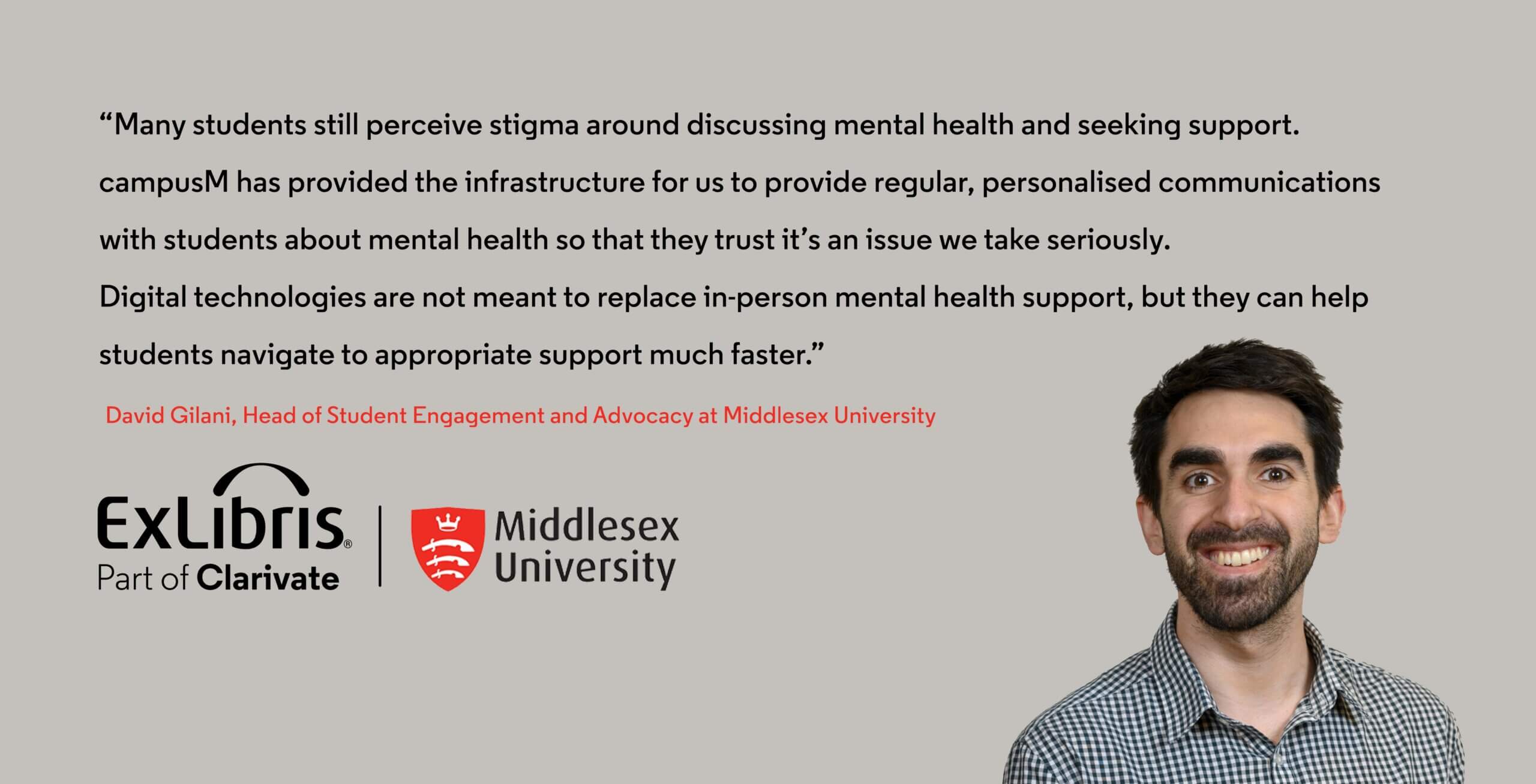In today’s fast-paced academic environment, mental health and student well-being are critical components of the overall student journey. Middlesex University has been at the forefront of addressing this challenge, particularly through its digital platform, campusM. As David Gilani, Head of Student Engagement and Advocacy at Middlesex University, has been instrumental in these initiatives, we will also be incorporating his insights into this discussion.
Responding to Student Feedback
Middlesex University recognized early on that mental health needed to be an integral part of student support services. A significant turning point occurred during the pandemic when the increased need for mental health resources was exacerbated by the challenges enforced by social distancing. Students were struggling with isolation, anxiety, and academic pressures. To address these challenges, the university adapted quickly, using student feedback as a key component of their response.
One of the most effective methods was the introduction of monthly push notifications through campusM library software. Each notification included a one-question poll designed to assess student well-being. Depending on their answers, students received personalized messages and guidance. The approach was highly successful, with approximately 1 in 10 students reaching out to mental health services following the poll.
This strategy not only increased awareness but also built trust. Students began to understand that the university prioritized their mental health and was responsive to their needs. It reinforced the idea that mental health is not just an afterthought but a key element of student life.
“Many students still perceive stigma around discussing mental health and seeking support. campusM has provided the infrastructure for us to provide regular, personalised communications with students about mental health so that they trust it’s an issue we take seriously. Digital technologies are not meant to replace in-person mental health support, but they can help students navigate to appropriate support much faster.” David Gilani, Head of Student Engagement and Advocacy at Middlesex University
Delivering Personalized Experiences at Scale
The importance of being personal cannot be overstated. Every student has unique needs, ambitions, and expectations. The challenge for institutions is delivering a differentiated, bespoke experience that caters to each individual’s journey. Middlesex University has risen to this challenge with the help of campusM, providing a scalable personalization infrastructure that meets students where they are. Whether that’s in their studies, their mental health, or through targeted communication like polls and notifications. Through this role-based personalization, Middlesex can segment and tailor the experience to each student’s needs, ensuring that mental health support, and other critical services, are both accessible and relevant. David Gilani highlights that these personalization strategies are part of a larger ecosystem designed to enhance both student and staff well-being, reinforcing the interconnectedness of their experiences.
Next Steps in the Journey
As the university looks forward, they aim to continue expanding their digital services through campusM, ensuring that mental health support evolves alongside student needs. By leveraging feedback and refining their user-led personalization efforts, Middlesex University remains committed to fostering a healthy, engaged, and supportive student environment.
Middlesex has paved the way for integrating mental health into the digital student experience, setting a strong example for other institutions to build upon and continue enhancing student well-being.











